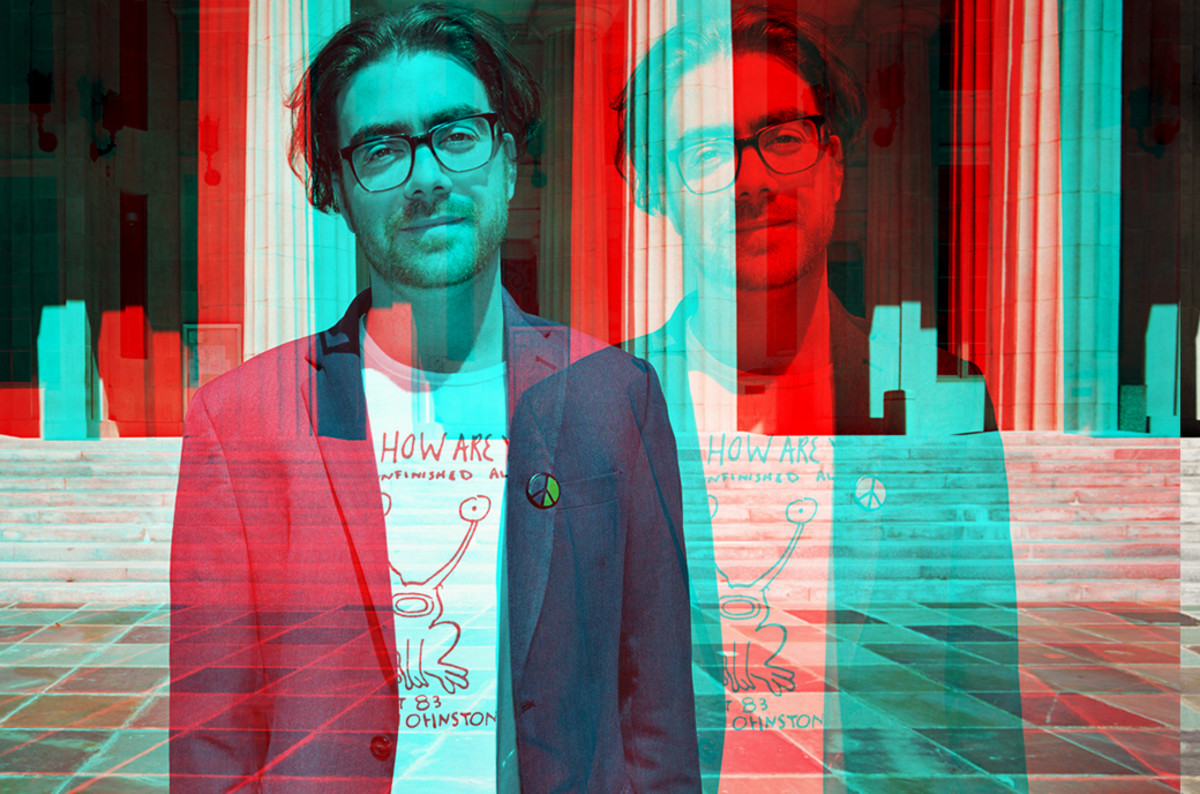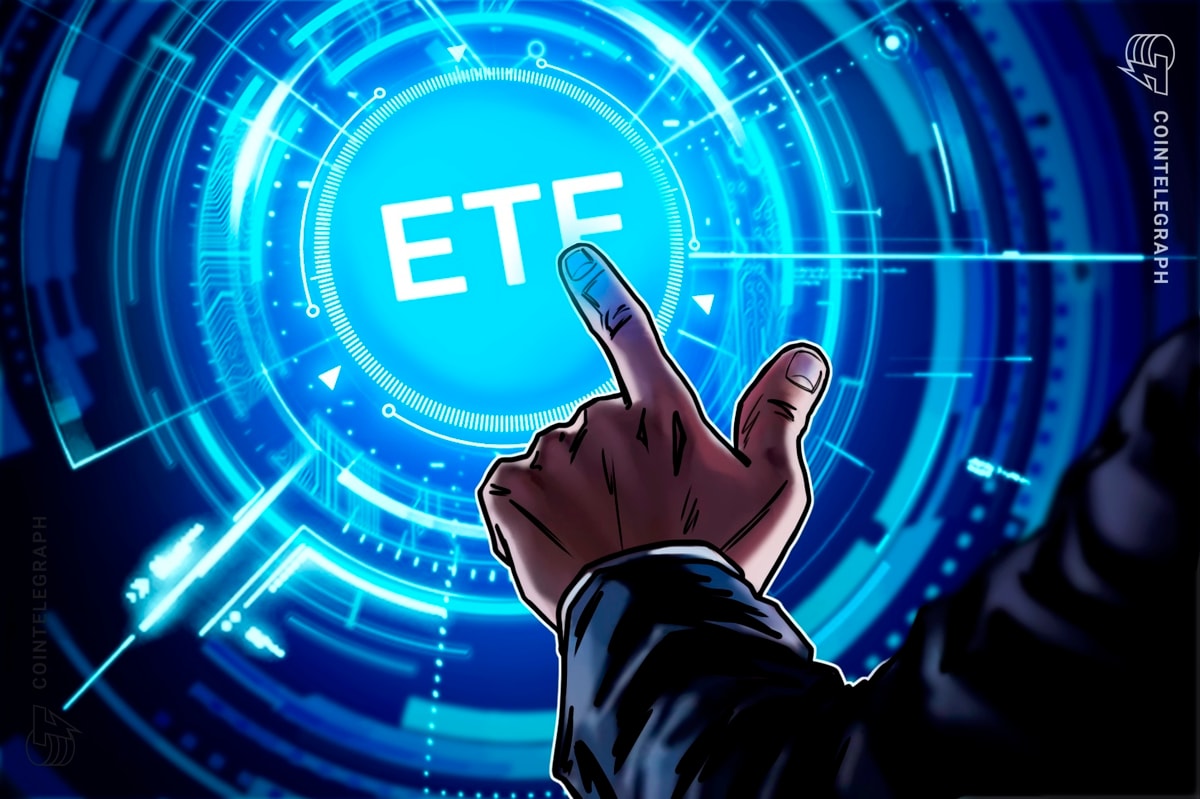
Justin S. Wales, senior council at Carlton Fields, discusses his recent research paper and how the First Amendment protects the Bitcoin network.
In a tweet he posted on November 25, 2019, Carlton Fields Senior Counsel Justin S. Wales announced the publication of a unique research paper which linked bitcoin transactions with free speech and the First Amendment of the U.S. Constitution. The paper, which was co-authored with veteran First Amendment lawyer Richard J. Ovelmen, is part of Volume 74 of University of Miami Law Review. It’s called “Bitcoin is Speech: Notes Toward Developing the Conceptual Contours of Its Protection Under the First Amendment.”
“I wrote this article alongside my colleague Richard J. Ovelmen, a very important First Amendment lawyer who has written on the topic over the last 35 years,” said Wales during the beginning of an interview with Bitcoin Magazine.
Why Link Bitcoin and the First Amendment
The motivation behind this interesting intellectual effort revolved around the narrow and sometimes wrongful interpretation that regulators and courts apply to bitcoin transactions. In Wales’ own words, “one of the issues that we often see when governments pass regulation about Bitcoin or courts interpret whether the sale of bitcoin involves money transmission or implicates financial regulation, is that they look at Bitcoin in a very narrow way. They’ll say that Bitcoin is a currency, currencies are money, and there are these regulations that exist for money.”
But as Wales and his colleague argue, there are instances when bitcoin is much more than money or a financial tool.
“It’s more of an expressive communication tool which should be protected by corresponding rights and protections,” added Wales.
Furthermore, Wales defines Bitcoin as more of a computer network with corresponding checks and balances which runs under fair and mutually agreed upon rules. In his reading, outside of its purely financial purposes, Bitcoin also has the qualities of a “decentralized network that allows us to communicate in different ways with each other.”
Nonetheless, Wales argues that not all bitcoin transactions are nonfinancial or should, therefore, be exempt from regulations on the grounds of the First Amendment.
“What we argue is not necessarily that all First Amendment rights should be put into Bitcoin to avoid regulations, but that Bitcoin is a more holistic and expressive platform that is not just a tool for financial transactions,” he explained.
The motivation behind the research he co-authored is not to deny the economic and financial implications of Bitcoin, but to help legal scholars and regulators understand Bitcoin from a broader perspective.
“We should also think about whether or not we want to place the same regulations that we have for money onto this platform. We argue that courts and regulators should think about the broader implications before they start passing regulations,” clarified Wales.
The Conflicting Layers of U.S. Regulations for Bitcoin
In continuation of his argument, Wales exemplified how different governmental agencies can have divergent views even at the federal and state level.
“One of the issues we have in the United States is that state regulators pass regulations on virtual currencies generally,” he said. “Sometimes these provisions conflict with the framework enacted by federal agencies: the IRS treats virtual currencies different than the [U.S. Securities and Exchange Commission], and sometimes the [U.S. Commodity Futures Trading Commission] also has a different stance.”
Wales went on to present the consequences of this multiplicity of official stances.
"This creates a very fractioned system and it’s very difficult for a person to operate,” he said. “You also have issues like the ones from Florida, where the office of financial regulations does not view bitcoin as money to the extent that it applies money transmitting regulations. However, courts within Florida view it as money: so you have an agency taking different determinations from courts. It means that you may or may not be in violation of the law, you may or may not be subject to criminal liability. It depends on who you ask.”
Bitcoin Versus Other Virtual Currencies
Wales added that his academic output also serves the purpose of distinguishing bitcoin from the broader categorization granted by the “virtual currency” label.
“One of the things that we do in this paper, and we try to make it very clear, is that we are only talking about bitcoin,” he explained. “There are lots of virtual currencies, decentralized currencies, and there are various degrees of decentralization among the network. We only try to focus on bitcoin and we try to present some principles which argue why Bitcoin may be viewed as a more expressive platform than some others.”
One of the motivations behind Wales’ argument is that Bitcoin is technically different from other digital currency platforms, like Ethereum, and should, therefore, be treated differently by regulators.
“One of the problems that we have at both the judicial level and regulatory level is that, most of the time, the regulators are passing regulations and making interpretations with very broad strokes,” Wales explained. “They’re saying ‘all virtual currencies are X. Bitcoin is treated like Ethereum, Ripple, virtual currencies and Bitconnect.’ And that’s very difficult because these are very different types of technologies sometimes, and they have very different use cases. Some networks are very centralized, some of them are very decentralized, and they all have different positives and negatives.”
An important argument made throughout the research paper is that regulations need to take into account specific features of each network and balance strict rules with the citizens’ rights to benefit from technological advancements.
“One of the arguments that we make is that regulations need to be cognizant of some of the differences,” Wales said. “Because what you don’t want to do is put regulations that make it impossible for me to use whatever type of decentralized network. These networks might benefit how we express ourselves and communicate with each other. You may prevent free speech just because you’re trying to stop investors from being scammed.”
Bitcoin and Free Speech
The First Amendment of the U.S. Constitution protects free speech, freedom of the press, the right to peacefully assemble and the right to petition the government. Of these provisions, the most obvious one to relate to Bitcoin is that of freedom of speech: Where transactions, as data transmission mechanisms, are considered to be a form of individual expression. Wales advocates for this interpretation and even points out that the first Bitcoin block included a political message against bank bailouts. In this regard, bitcoin transactions might be interpreted as statements of political nature.
Conversely, Wales explained how and why the First Amendment should be taken into consideration when dealing with a network that is outside of governmental control.
“The First Amendment protects communication and my right to interact anonymously in some cases,” he said. “The protection is from the First Amendment, and the courts have recognized a lot of implied rights over the centuries. I would argue that there isn’t necessarily a need to enact new protections of Bitcoin because they’re already there.”
Wales also presented the case of “Packingham v. North Carolina” as a good example in which the U.S. Supreme Court extended First Amendment protections toward technological innovation on the grounds that contemporary understanding of the internet is very poor.
“The nature of a revolution in thought is that the people behind that revolution don’t really know where the events will lead,” explained Wales. “The quote [in our paper] about revolution in thought was taken from Benjamin Rush, who was talking about the U.S. democratic experience during the American Revolution. It’s interesting that the Supreme Court has extended the meaning toward new technologies whose potential we don’t fully understand.”
Furthermore, as technology continues to evolve, it will naturally grow in ways that the framers of the Constitution could not have possibly imagined. As such, Wales argues that it’s critical that regulations apply fairly to new innovations.
“In the 1780s, people didn’t really know what the American democracy would look like,” he added. “Likewise, we don’t know right now what are the implications of having a truly connected global society. So as a regulator, court or prosecutor, make decisions which take into account what these technologies can be, recognizing that you will never be able to know all the implications.”
Within the University of Miami Law Review article, the quote of Benjamin Rush and the arguments presented in the Packingham v. North Carolina case are used as frameworks to both look for more implications of Bitcoin and to acknowledge that current understandings are limited by the existing use cases.
Wales described the research hypothesis as starting from a position where “we don’t know a lot, so we just recognize how little we know, we don’t pretend that we know what Bitcoin will look like 10 years from now or 100 years from now, so let’s not create regulations or put people in jail or create case law that will have to be amended in the future just because we need to solve the case in front of us.”
Bitcoin and Freedom of Assembly
One of the biggest concerns regarding participation in the Bitcoin network as a miner or validating a node is that the government may ban such activities. However, Wales argues that any such scenario would be unconstitutional in the U.S.
“I think a lot of those hypotheticals are functionally impossible to really enforce in the U.S. for a couple of reasons,” he said. “When we talk about the First Amendment, there are several different provisions: one is freedom of the press, another is freedom of religion, another is freedom of association and another is the ability to petition the government. So when we think in terms of ‘Can the government pass a law which makes it illegal to run a node or mine?,’ well, it’s very difficult because what does it mean for me to run a node? It means that I’m running a piece of software that is connected to a larger network to which I am participating to keep track of all the Bitcoin transactions. That’s association! I’m saying that I want to be associated with that network for political reasons. It’s very clear that the First Amendment includes associational rights, and I think it would be really difficult for the federal government or state government to make running a node or mining bitcoins illegal.”
Wales also presented his legal understanding on the limits of U.S. government intervention over the mining industry.
“Mining implies that I am working with everyone else around the world to maintain the integrity of the Bitcoin network through donating my computational power,” he said. “You can pass tax rules regarding what happens when I run a bitcoin [node], you can regulate some of the financial aspects, but the actual participation is very difficult to restrict. That doesn’t mean that you can’t do it in other countries, but these ... don’t have the same legal protections that the U.S. First Amendment grants.”










